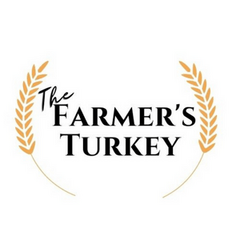ChopLocal Halal Meats

ChopLocal is proud to introduce our first halal certified meat vendor - Chaudhry Halal Meats!
Have questions about halal? Read on for the answers.
Understanding Halal Meat: What It Means and Why It Matters
Halal meat is an essential concept in Islamic dietary laws, and it’s gaining global recognition due to the increasing demand from Muslim consumers. But what exactly is halal meat, and why is it significant? In this blog, we'll explore what halal means, the process of halal meat preparation, its importance to the Muslim community, and how it fits into a broader discussion of ethical eating.
What is Halal Meat?
The term "halal" is Arabic for "permissible" or "lawful." In the context of food, halal refers to foods that are allowed for consumption according to Islamic law (Sharia). Halal meat comes from animals that have been slaughtered in a specific way, following the rules outlined in the Quran. The opposite of halal is "haram," meaning forbidden. Certain animals, such as pigs, are considered haram and can never be consumed by Muslims.
To be halal, meat must meet several important criteria. First, the animal must be healthy at the time of slaughter. Second, it must be slaughtered by a Muslim who invokes the name of Allah before performing the act. The method of slaughter is also crucial: the animal’s throat must be swiftly cut with a sharp knife to allow the blood to drain out completely. This practice is believed to ensure that the meat is pure and safe to eat, as blood is considered impure in Islam.
The Process of Halal Meat Preparation
The preparation of halal meat follows strict guidelines to ensure that the food adheres to Islamic principles. It starts with the selection of animals that are permissible to eat—commonly cows, goats, sheep, and chickens. The slaughter process, known as "dhabiha," is performed while the butcher recites a prayer to Allah. The swift cutting of the throat ensures a humane and ethical death, minimizing the animal's suffering.
Once the animal is slaughtered, its blood is drained from the body. According to Islamic law, blood is considered haram, so the complete removal of blood is necessary to keep the meat pure. Afterward, the meat undergoes standard processing, which must also comply with halal guidelines, ensuring that no contamination with non-halal substances occurs.
Why Halal Meat is Important for Muslims
For Muslims, consuming halal meat is not just a dietary preference; it’s a religious obligation. Following the halal guidelines is a way of demonstrating obedience to Allah and maintaining a connection with Islamic teachings. The principles of halal extend beyond just meat and cover the ethical treatment of animals, cleanliness, and health standards.
Many Muslims feel that halal meat is healthier and more ethical than conventional meat. The process of draining the blood is thought to reduce the risk of contamination, while the humane method of slaughter aligns with Islamic teachings about kindness to animals. As such, halal meat holds spiritual, ethical, and practical significance in the lives of those who follow Islam.
Halal Meat in a Broader Context
In recent years, halal meat has gained traction outside of Muslim communities as well. With the rise of ethical consumerism, people are more interested in where their food comes from, how animals are treated, and what standards are followed during food production. Halal meat, with its emphasis on ethical treatment, aligns with this growing concern.
In many parts of the world, including North America and Europe, halal-certified products are becoming more accessible, even to non-Muslim consumers. Many see the halal certification as a sign of high-quality and ethically sourced meat, and it’s becoming a staple in diverse cuisines.
ChopLocal's Halal Meat
ChopLocal is proud to partner with Chaudhry Halal Meats, from Siler City, North Carolina. The Chaudhry family, led by Abdul Chaudhry, who immigrated from Pakistan in 1979, built their halal meat business (and the only mosque in Siler City) to fill an important need for Muslim people in the North Carolina Triangle region.
Read more about the Chaudhry family's story here.

